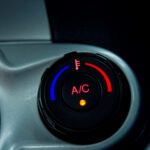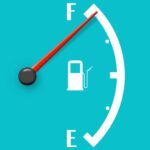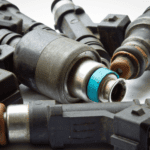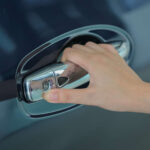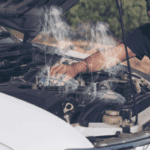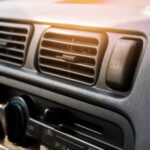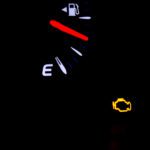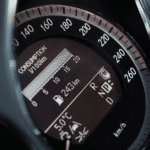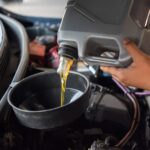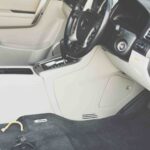Have you ever heard a popping sound coming from your car’s exhaust? It might sound cool, but it could also be a sign of a problem.
There are a few different names for the popping noise, but it’s most commonly known as a backfire, which means the ignition (the bang) is happening outside the engine after it should’ve occurred.
To get started, regardless of the causes for a popping noise in the exhaust, they usually result from an incorrect ratio of air-to-fuel mixture injected into the cylinder for combustion. An incorrect fuel-air ratio can result in incomplete combustion, which means unburnt fuel will be forced into the exhaust system. A hot exhaust will ignite the unburnt fuel and cause the popping as the fuel explodes in the exhaust (backfire).
In some cases, a backfire may be completely normal. For example, in high-performance vehicles like Ferraris or Lamborghinis, when a driver lifts their foot off the accelerator pedal to change gear, it causes a sudden decrease in the air and fuel flow to the engine. The unburnt fuel that has already made its way into the exhaust system can ignite, producing a loud popping or cracking sound. The exhaust is designed to amplify this sound in these vehicles for a better driving experience, but this is not normal in your everyday car.
What Causes Popping in an Exhaust?
As we’ve established, the reason for popping in the exhaust is because of unburnt fuel entering the exhaust; there are six different potential causes of this, which are:
- Injector problems – An injector’s job is to spray fuel into the air, that’s then compressed for combustion. If the injector is not spraying enough fuel because of problems like a blockage, it will cause a misfire which means the unburnt fuel will enter the exhaust.
- Faulty ignition system – A problem with the timing, coil pack, or spark plugs means the ignition doesn’t happen on time, and the fuel burn cleanly, resulting in misfires and unburnt fuel entering the exhaust system.
- Clogged air filter – A clogged or dirty air filter can restrict airflow and cause a rich fuel mixture meaning there is too much fuel compared to the amount of air sucked into the engine; this will result in incomplete combustion, and fuel will enter the exhaust.
- Malfunctioning exhaust system – Problems such as a leak in the exhaust system will result in a popping noise; essentially, you get a vacuum leak, and fresh oxygen is forced back into the engine the wrong way, meaning you get a lean mixture burning.
- Aftermarket modifications – Modifications such as a free-flowing exhaust system or an aftermarket air filter will cause a popping noise in the exhaust, especially on overrun. A car ECU can also be remapped to encourage popping and crackling in the exhaust by altering the timing and fuel mixture.
- Faulty O2 sensor – The O2 sensors detect how much oxygen is in exhaust gasses and adjust the fuel mixture accordingly. A faulty O2 sensor can result in a lean or rich mixture. Unburnt gas will end up in the exhaust where it will ignite, resulting in a popping noise from the exhaust and an increase in fuel consumption.
Effects of Popping in an Exhaust
Popping in the exhaust can have different effects, depending on the cause. Here are some possible consequences:
- Reduced performance – The engine may produce less power if a lean or rich fuel mixture causes the popping, resulting in reduced acceleration and overall performance.
- Increased emissions – Unburnt fuel entering the exhaust system will increase emissions, which can cause a car to fail an emissions test or violate local environmental regulations.
- Reduced fuel efficiency – The vehicle will have noticeably poor fuel efficiency due to unburnt fuel forced into the exhaust system.
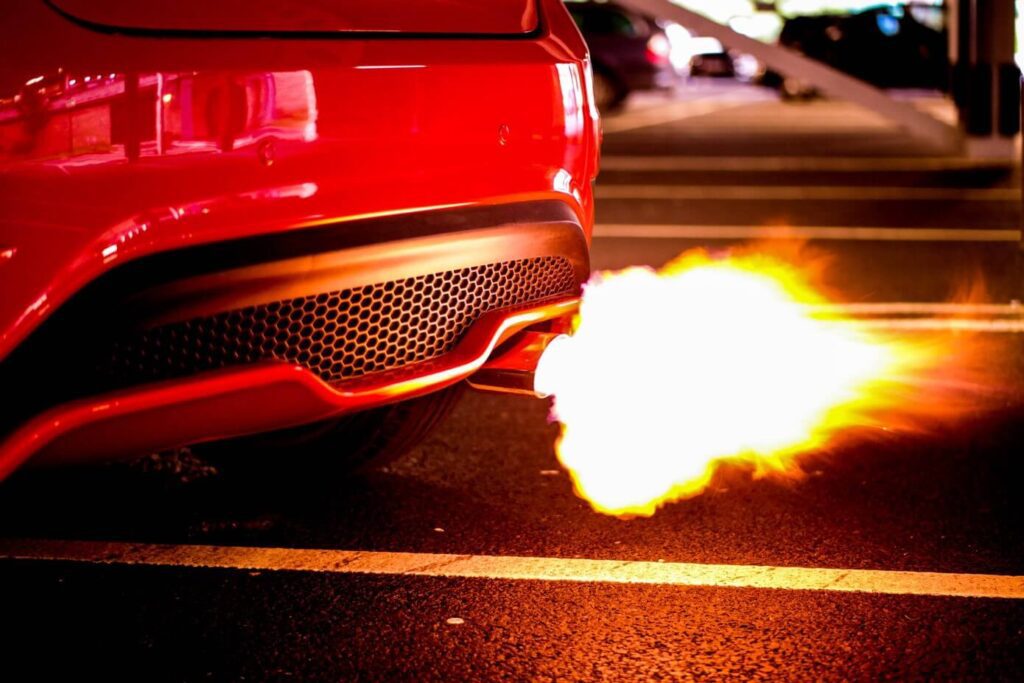
Possible Damaged Parts
- Catalytic converter – If your car backfires excessively, it can damage the catalytic converter. The catalytic converter’s role is to reduce emissions by converting harmful pollutants into less harmful pollutants. If unburnt fuel gets into the catalytic converter and ignites inside, it can cause its honeycomb-like structure to overheat and melt. A blockage in the catalytic converter and further problems can occur.
- Exhaust valves – If your car backfires often, it can cause the exhaust valves to overheat and warp. The exhaust valves open and close to allow exhaust gases to escape the engine. However, if a backfire occurs while the exhaust valve is open, it can cause hot exhaust gases to get sucked back into the cylinder and ignite the fuel mixture prematurely.
- Piston rings – Backfires can also damage the piston rings. The piston rings seal the combustion chamber, preventing oil from entering the combustion process. However, if a backfire occurs, the sudden pressure can cause the piston rings to break or become damaged, leading to oil leaks and decreased engine performance.
- Spark plugs – If your car is frequently backfiring, it can cause the spark plugs to wear out quicker. The spark plugs provide the spark to ignite the fuel mixture in the engine. However, sudden pressure can damage the spark plugs if a backfire occurs, leading to misfires and reduced engine performance.
How Do I Stop My Exhaust From Popping?
You must identify and address the underlying cause to stop the exhaust from popping. Here are some steps you can take:
- Check the air filter – If the air filter is clogged or dirty, replacing it with a new one is inexpensive and can be carried by almost anyone without any previous mechanical experience.
- Check for exhaust leaks – leaks in the exhaust system can cause air to enter the engine incorrectly. Check the exhaust system for leaks and repair or replace damaged parts.
- Check the fuel system – a faulty fuel system can cause a lean fuel mixture, leading to popping in the exhaust. Check the fuel pump, injectors, and pressure regulator for any issues and repair or replace them.
- Check the ignition system – a faulty ignition system can cause misfires and unburned fuel to enter the exhaust system. Check the spark plugs, ignition coils, and the timing for any issues, and repair or replace them as needed.
- Consider a tune-up – if the engine is running poorly or has not been serviced in a while, a tune-up may help to address any underlying issues and improve performance.
Conclusion
Although you might think popping from the exhaust sounds good, there are a few occasional exhaust pops are generally nothing to worry about. However, consistent or loud backfiring needs to be addressed. The last thing anybody wants is engine failure all because of a few pops and bangs from the exhaust.
